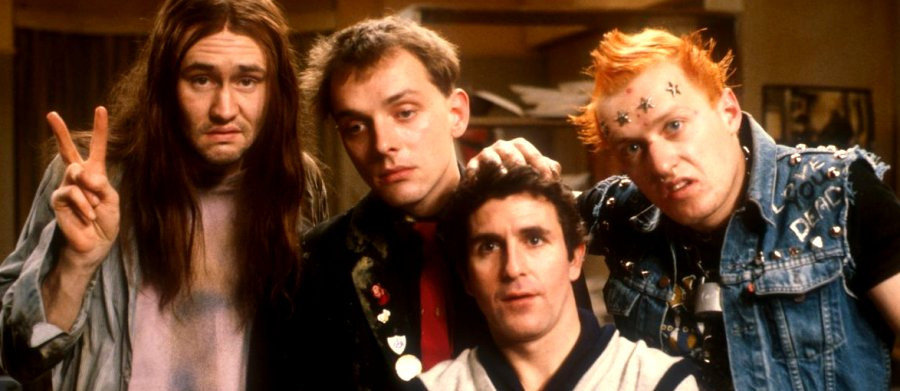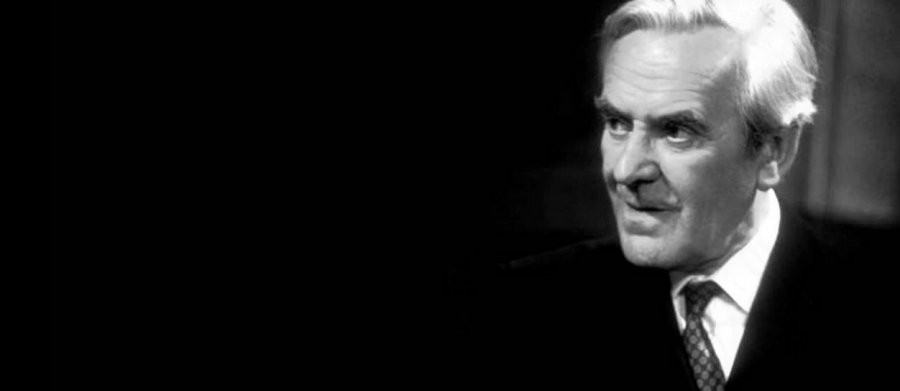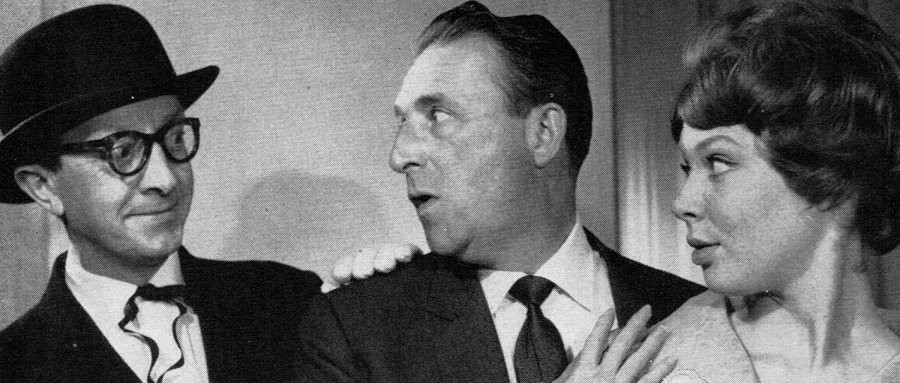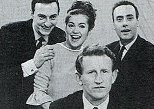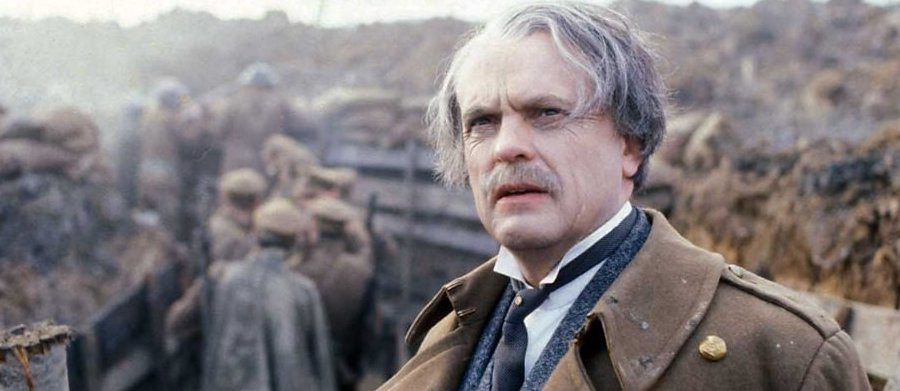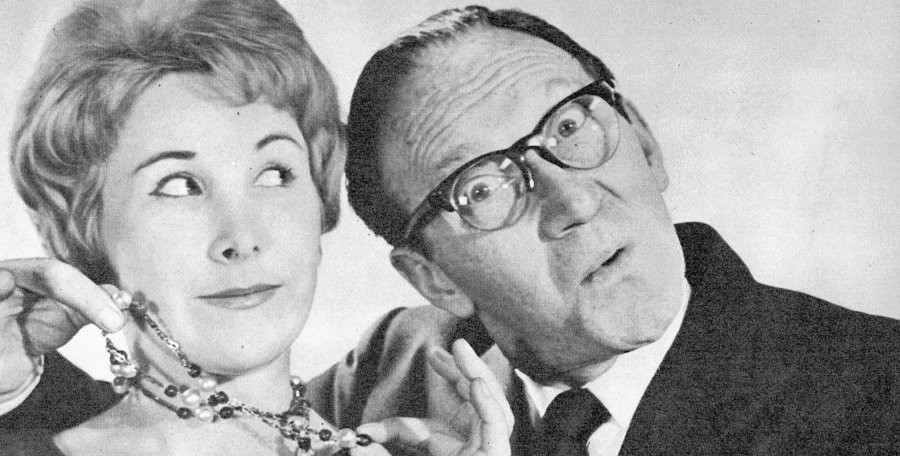
A Kick Up the Eighties
1981 - United KingdomReview: John Winterson Richards
There is a practical difficulty in reviewing any of the satirical sketch shows that proliferated on British television in the 1980s following the success of Not the Nine O'Clock News. It gets very difficult to tell them apart, and one often has to check which sketch came from which show.
It is perhaps excusable that a reviewer's ageing memory may not be wholly reliable in this regard. For one thing, there were quite a lot of them, all aspiring to be "The Next Not the Nine O'Clock News." Given this shared aspiration, one is not surprised that they tend to have a lot more in common, in terms of style if not content. One keeps coming across the same names in different projects, both in the cast and the writing staff.
The problem is particularly acute when it comes to two separate shows that were both launched by the BBC in 1981, and that both relied heavily on the immense but still developing talents of the young Tracey Ullman, Three of A Kind and A Kick Up the Eighties.
Yet, as one compares the various Ullman sketches, one begins to remember the big differences between the two. Three of A Kind was bright and breezy, and further towards to family friendly end of the spectrum of taste. It was the one that tended to get the big Awards. A Kick Up the Eighties, its slightly more disreputable Scottish cousin, is less consistent in its tone, includes more "adult" material, and shows the greater influence of "alternative comedy." It was the one that tended to get the letters of complaint.
Its cast was eclectic. Ullman, Robbie Coltrane, Richard Stilgoe, Rik Mayall, Miriam Margolyes - it reads like a list of names pulled at random out of a hat, so different were their backgrounds and comedy styles.
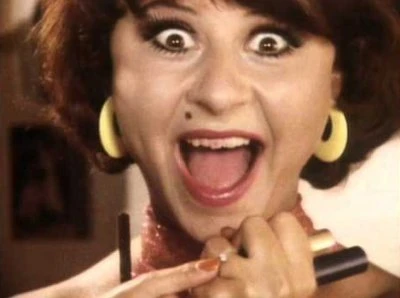
Ullman had not long broken through, which she did mainly thanks to her natural ability as an impressionist, but her work on Three of A Kind, which aired shortly before A Kick Up the Eighties, also showed her developing broader skills as a comic actress and comedienne.
Stilgoe, by contrast, was already a well known face on British television due to his work on the mainstream consumer affairs and light entertainment show That's Life, the epitome of all that was comfortable and middle class. It had been satirised cruelly by Not the Nine O'Clock News, the show Stilgoe's new show was trying to emulate. He had made his reputation by writing and performing gently satirical songs, much in the style of Flanders and Swann, most notably one listing the various officials who have a statutory right of entry to our homes. It is a lot better than it sounds.
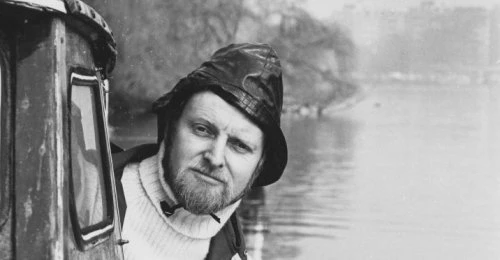
Mayall, like Ullman, had not long broken through but was already in demand. A full member of The Comic Strip, he was a card carrying "alternative comedian," and it is hard to imagine a greater contrast between his more aggressive style and Stilgoe's urbane light heartedness.
Margolyes is not a comic at all but a good general purpose actress specialising in character roles, which over the years have included a lot of comedic parts. She was the steady professional that held the whole thing together. It so happened that she also turned out to be a great impressionist in the right role: her impersonation of "agony aunt" Claire Rayner is spot on.
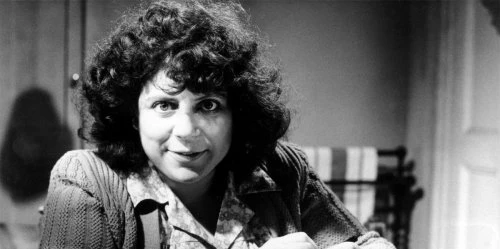
Coltrane, who joined the regular cast only in the belated second season, was an aspiring actor whose most high profile role when the show began was "Man at Airfield" in the much loved, and much derided, film 'Flash Gordon.' Having reached his thirties without major distinction, he had at least developed an air of maturity beyond his years and was blessed with a physical presence that was far more than mere bulk.
Ron Bain and Roger Sloman shared the "ordinary bloke roles" of the sort that were usually handled by David Copperfield on Three of A Kind. In sharp contrast with Not the Nine O'Clock News and Three of A Kind, there was little sense of a team on A Kick Up the Eighties. They were just different performers who did different bits, sometimes in very different styles.
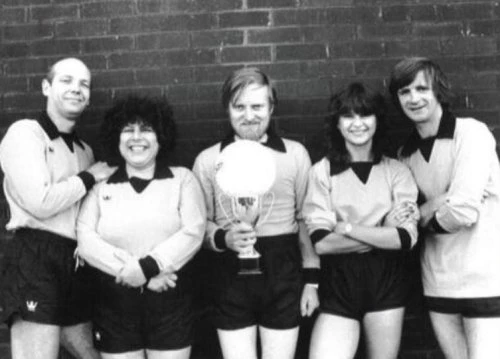
One more name should be mentioned: a young designer called Peter Capaldi contributed to the memorable opening titles sequence. However, despite that, design work must still have been thin on the ground because he decided to try his hand as an actor - and, very soon afterwards, a big role in the film 'Local Hero' confirmed that was where his real talents lay.
The show is best remembered for Mayall's "Kevin Turvey," a young self styled "investigative reporter" whose 'investigations" were no more than rambling accounts of the everyday humiliations of his humdrum existence. The format is curiously reminiscent of Ronnie Corbett's monologues in The Two Ronnies, in that Turvey just sits in an impressive looking chair and talks, apparently at random in a stream of consciousness fashion, but his material is very different. There are no actual jokes. The humour lies in Turvey's total lack of self perception.
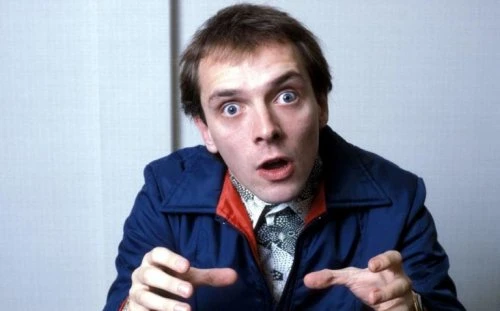
The character had been developed in Mayall's stage act, and there are clear parallels with his "Rick" in The Young Ones, which began to air the following year. One can see the great "alternative comedian" learning his craft, committing totally to the character . Mayall insisted on being credited only as "Kevin Turvey" - a brave decision at that point in his career.
Stilgoe also used the format of the monologue, which was probably the only thing he had in common with Mayall. Stilgoe's function was to provide filler between the sketches. Much of this was very witty, but in the slightly old fashioned style that would not have been out of place on radio in the 1950s. As if aware of this, Stilgoe tried to spice it up with slightly racier subjects than were usually associated with his public persona, such as modern dating. This disjunction of style and subject only served to draw attention to how out of his comfort zone he was.
The rest of the "team," if that word really applies, operated mainly through short comedy sketches, keeping their distance from the viewer - which is not unusual in such shows, but it was an odd contrast with Stilgoe's use of the talk direct to camera to establish intimacy.
Stilgoe left at the end of the first season, and there was a long gap before the second. The time was filled in part by Kevin Turvey: the Man Behind the Green Door, a one off short "mockumentary," or spoof documentary, featuring Mayall as the "breakout character" from A Kick Up the Eighties with Robbie Coltrane in support. Around the same time, Coltrane also worked on some early Comic Strip projects for Channel 4. Although neither a "stand up" nor an "alternative comedian" himself, the jobbing actor made himself generally useful to the young comics and soon became a regular collaborator. He thus began to forge the connections that were particularly important in the new 1980s comedy scene.
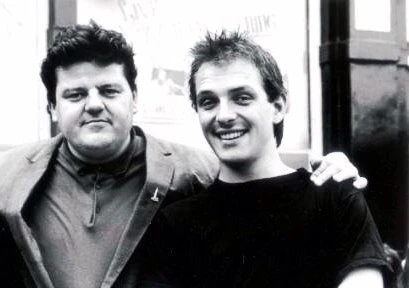
When, after over two years, A Kick Up the Eighties returned for its second season, Coltrane had joined the regular cast and established himself immediately as a dominant personality onscreen. He took over from Stilgoe the role of linking the sketches. To be honest, his links - for example, an apparent drunk shouting gibberish at the camera - were not as amusing as Stilgoe's, but the fact that he also played a major role in the sketches themselves gave the project a coherence it had lacked. However, Mayall, as Turvey, remained a man totally apart.
The show may have been Coltrane's own breakthrough moment. Certainly, if anyone broke through on the show it was him, rather than Ullman and Mayall who were already on their way. What A Kick Up the Eighties gave Coltrane was the opportunity to put a definite persona of his own before the public and, at the same time, to stretch his acting muscles a little. While he had to wait for Tutti Frutti to really establish himself, this was the turning point in his career.
The show ended when Ullman and Mayall, already very busy, left to move on to greater things, as they had always seemed destined to do, but Coltrane and Bain linked up with the uber-talented John Sessions and Louise Gold for the clumsily named Laugh??? I Nearly Paid My Licence Fee, which was in effect a "spin off" from A Kick Up the Eighties. It was in fact the latter show which played host to the Robert Louis Stevenson pastiche "The Master of Dundreich," which your reviewer had remembered as a highlight of A Kick Up the Eighties.
Still A Kick Up the Eighties has some memorable moments of its own. Its finest hour was a damning Ullman-led satire on Channel 4's The Mini Pops, a show in which young children were dressed up in revealing outfits and danced suggestively to the latest chart music. Yes, that actually happened.
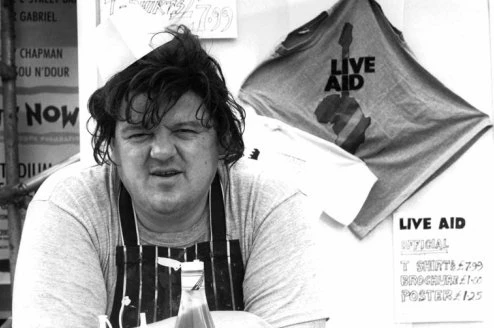
Coltrane's best line was as a male chauvinist who announced, generously, that he did not mind if his wife became an airline pilot and flew all around the world...just so long as she had his dinner on the table when he got home. If such sketches were not always in good taste, that is not necessarily a bad thing - except when they were simply unfunny, which, it has to be said, was definitely the case on occasions. Overall, the show had a lot of fine moments, but, under the influence of "alternative comedy," it took risks, and sometimes those risks did not pay off. Looking back, it was an important transitional show with a few good laughs, no more, no less.
About the writer of this review:
John Winterson Richards is the author of the 'Xenophobe's Guide to the Welsh' and the 'Bluffer's Guide to Small Business,' both of which have been reprinted more than twenty times in English and translated into several other languages. He was editor of the latest Bluffer's Guide to Management and, as a freelance writer, has had over 500 commissioned articles published.
He is also the author of ‘How to Build Your Own Pyramid: A Practical Guide to Organisational Structures' and co-author of 'The Context of Christ: the History and Politics of Rome and Judea, 100 BC - 33 AD,' as well as the author of several novels under the name Charles Cromwell, all of which can be downloaded from Amazon. John has also written over 100 reviews for Television Heaven.
John's Website can be found by clicking here: John Winterson Richards
Seen this show? How do you rate it?
Seen this show? How do you rate it?
Published on August 14th, 2020. Written by John Winterson Richards for Television Heaven.


